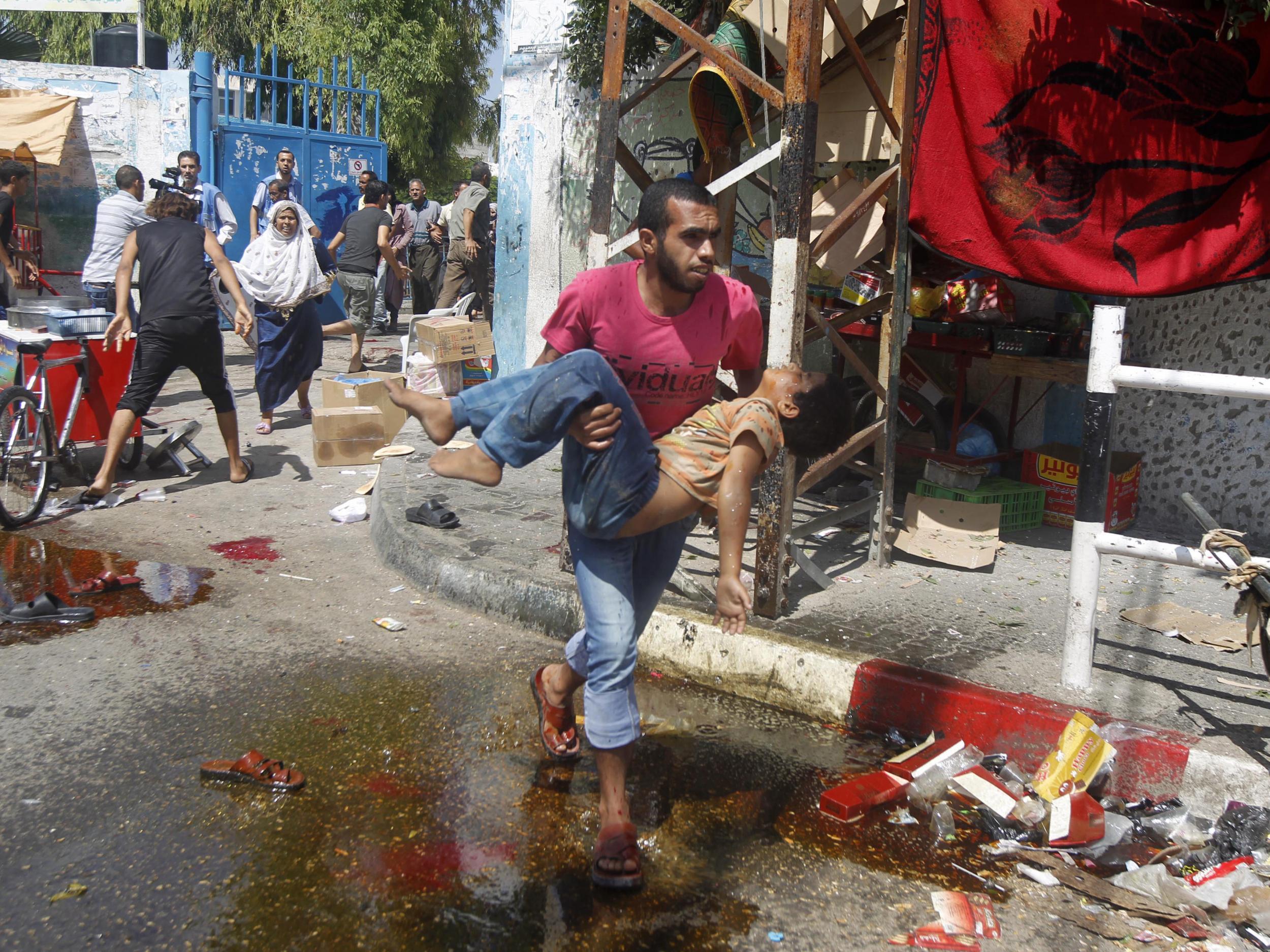Israel military clears itself of wrongdoing over 2014 Gaza air strikes
Rulings come after more than 2,000 Palestinians and 72 Israelis killed in the conflict

Your support helps us to tell the story
From reproductive rights to climate change to Big Tech, The Independent is on the ground when the story is developing. Whether it's investigating the financials of Elon Musk's pro-Trump PAC or producing our latest documentary, 'The A Word', which shines a light on the American women fighting for reproductive rights, we know how important it is to parse out the facts from the messaging.
At such a critical moment in US history, we need reporters on the ground. Your donation allows us to keep sending journalists to speak to both sides of the story.
The Independent is trusted by Americans across the entire political spectrum. And unlike many other quality news outlets, we choose not to lock Americans out of our reporting and analysis with paywalls. We believe quality journalism should be available to everyone, paid for by those who can afford it.
Your support makes all the difference.The Israeli military has exonerated itself over a series of deadly air strikes during the 2014 war in Gaza.
Investigators had been collecting testimony from military officers and Gaza residents relating to seven incidents during the conflict, three of them lethal.
Among the cases the Israeli military will not proceed with is one air strike that killed ten Palestinians in a UN school.
Israel's domestic investigations are significant to the Palestinian effort to prosecute Israel for war crimes in the International Criminal Court (ICC) in the Hague.
More than 2,000 Palestinians and 72 Israelis were killed during the war in Gaza. Two years after the end of the conflict, the Israeli military was still processing 500 allegations against its forces.
Human rights groups have claimed the Israeli military investigations are biased and ineffective and have called for an impartial inquiry into the alleged war crimes.
The most deadly case which was closed without charges on Wednesday was an investigation into the killing of 15 members of the same family by an air strike in Rafah, southern Gaza.
The military said the building targeted by the strike that killed the family was a Hamas command centre, a claim refuted by relatives of those killed. It ruled the air strike was in line with international law, although it conceded civilian casualties were higher than anticipated, AP reported.
"The attack complied with the principle of proportionality, as at the time the decision to attack was taken it was considered that the collateral damage expected to arise as a result of the attack would not be excessive in relation to the military advantage anticipated from it," it said.
"This assessment was not unreasonable under the circumstances, despite the discovery, in the wake of the strike, of discrepancies between the reality prevailing on the ground and the information available at the time."
Sari Bashi, Israel and Palestine director at Human Rights Watch, told The Independent: "We do not believe that either the Israeli or Palestinian authorities are conducting adequate domestic investigations into serious allegations of war crimes.
"The Israeli military investigative system has proven to be unwilling to examine decisions made at a senior level that appear to violate the laws of war, including targeting apparently civilian objects such as residential buildings and firing heavy artillery into densely populated civilian areas.
"Instead, the military has prosecuted foot soldiers for misconduct such as looting and vandalism.
"We believe the international criminal court should investigate these potential crimes, because the Israeli military is unwilling or unable to do so."
Ms Bashi said the Israeli military were stopping outsiders from entering Gaza, meaning vital international observation of events in the war-stricken area was lacking.
"We are troubled by the unwillingness of the Israeli military to allow access for human rights investigators – thwarting relevant information from coming to light," she said. "Israel does not allow human rights personnel to travel into and out of Gaza, even though it says it relies on these human rights groups for physical evidence and witness testimony it cannot access."
Israeli human rights organisation, B'Tselem said in June it had stopped referring human rights abuses to the Israeli defence forces, calling its investigation apparatus a “whitewash mechanism.”
Join our commenting forum
Join thought-provoking conversations, follow other Independent readers and see their replies
Comments